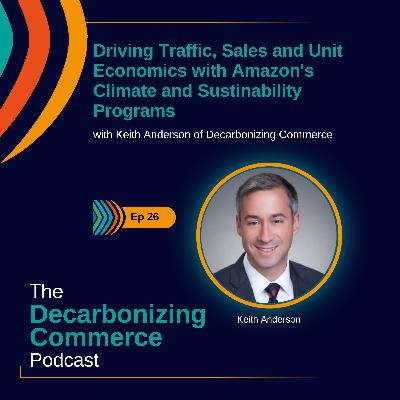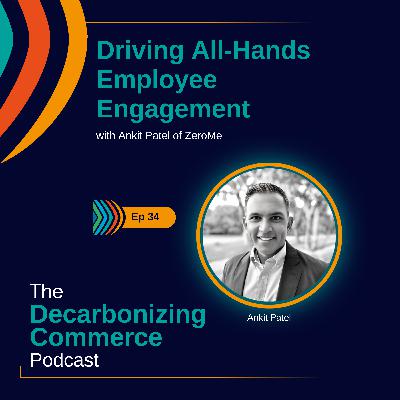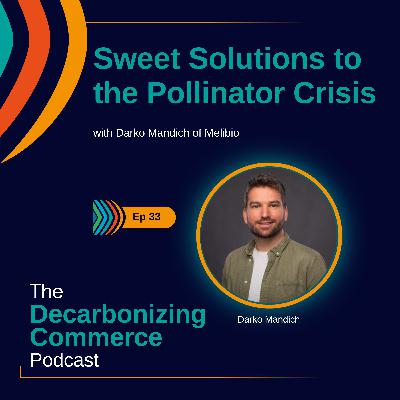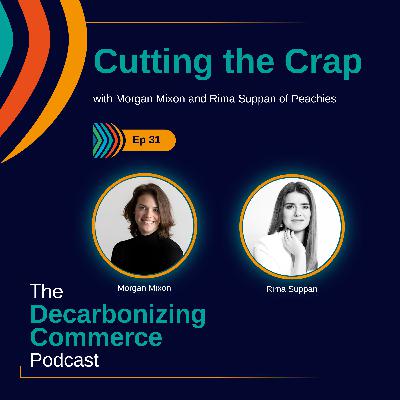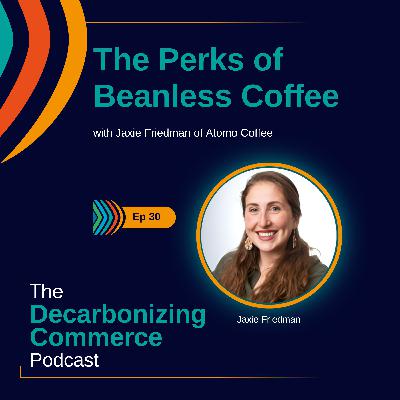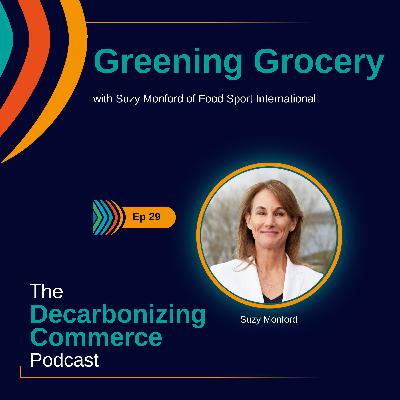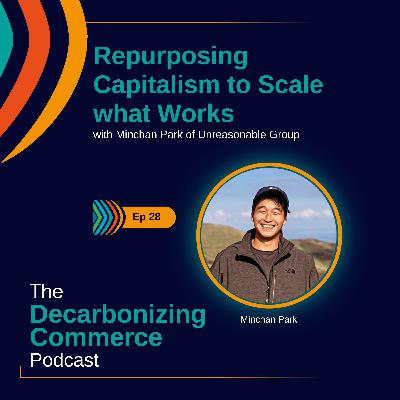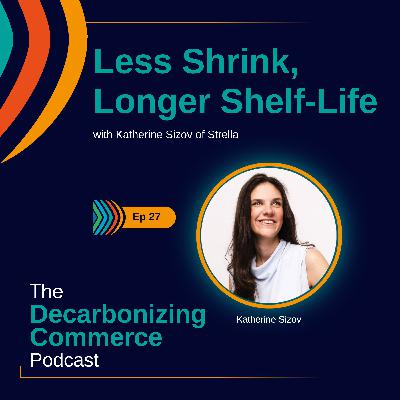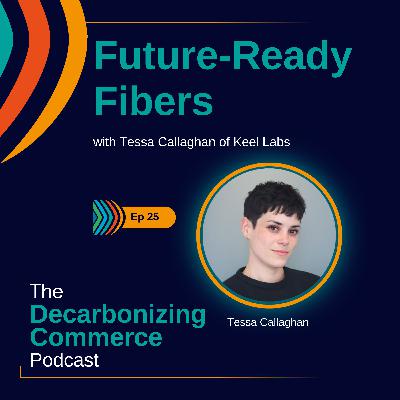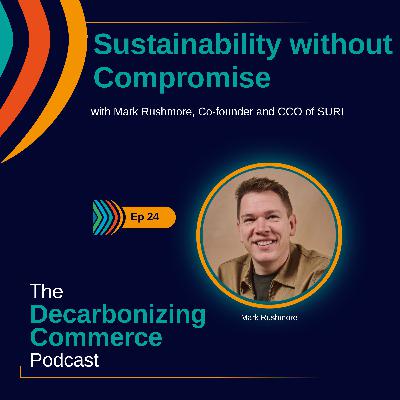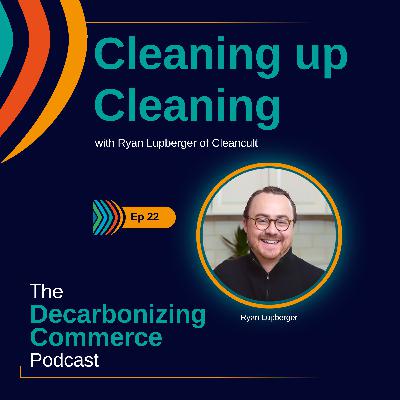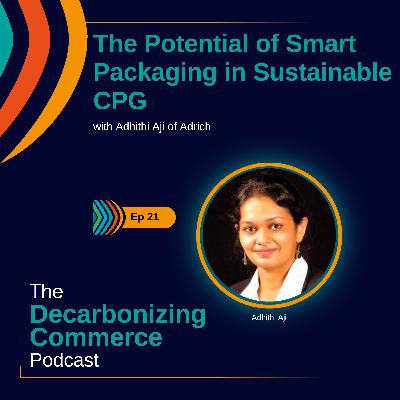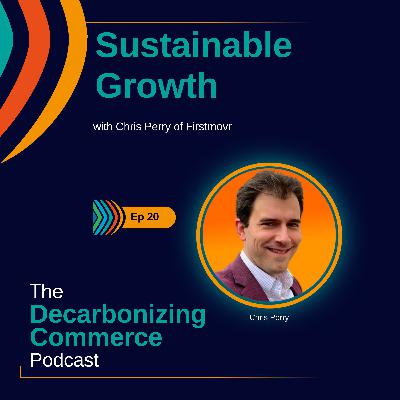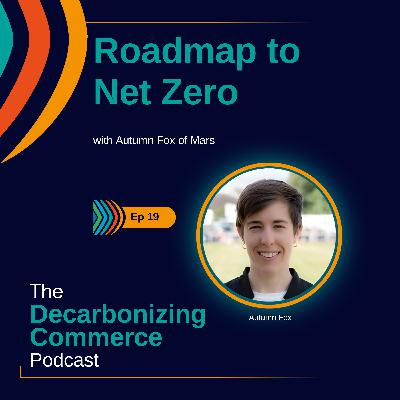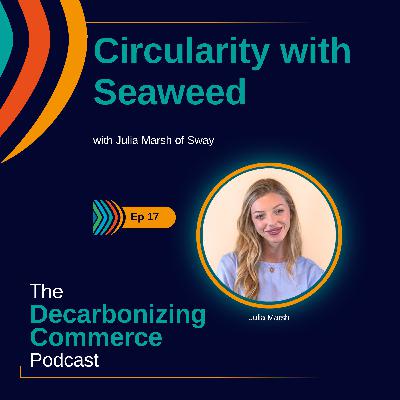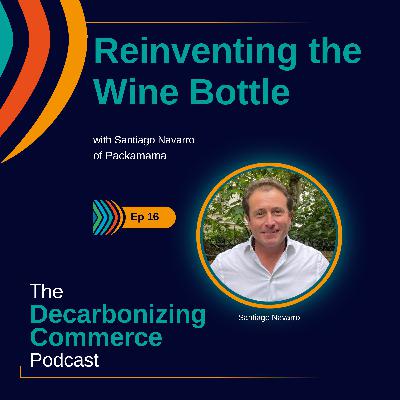Driving Traffic, Sales and Unit Economics with Amazon's Climate and Sustainability Programs with Keith Anderson of Decarbonizing Commerce
Update: 2024-05-02
Description
Relive a recent talk from Firstmovr’s JBPx Amazon eCommerce Growth Summit. The session was focused on two Amazon climate and sustainability initiatives for vendors and sellers: the Climate Pledge Friendly badge and Compact by Design. The session covers the programs' commercial benefits, guidance on how to qualify, and more.
Learn more about Keith and Firstmovr:
To listen to full episodes join our Plus or Pro memberships at decarbonize.co:
If you enjoyed this episode then please:
- Follow, rate, and review on Apple Podcasts
- Follow and rate on Spotify
Learn more about Decarbonizing Commerce at decarbonize.co
TRANSCRIPT BELOW:
Keith Anderson: Welcome to Decarbonizing Commerce, where we explore what's new, interesting, and actionable at the intersection of climate innovation and commerce. I'm your host, Keith Anderson, and together we'll meet entrepreneurs and innovators reinventing retail, e-commerce, and consumer products through the lenses of low carbon and commercial viability.
TRANSCRIPT BELOW:
Keith Anderson: Welcome to Decarbonizing Commerce, where we explore what's new, interesting, and actionable at the intersection of climate innovation and commerce. I'm your host, Keith Anderson, and together we'll meet entrepreneurs and innovators reinventing retail, e-commerce, and consumer products through the lenses of low carbon and commercial viability.
Welcome to the Decarbonizing Commerce Podcast. I'm Keith Anderson. This week, I've got something a little bit different for you. Instead of interviewing someone, I'll be sharing a recording of a presentation I gave last week as part of a Firstmovr virtual summit on Amazon. Firstmovr are old friends of mine and focused on omni channel education and change management for CPG companies.
My presentation was focused on two Amazon climate and sustainability initiatives, the Climate Pledge Friendly badge and Compact by Design. So, if you're an Amazon seller or vendor and want to understand how participating in these programs can help you drive traffic to your products, increase conversion rates and sales, and improve unit economics,
it's worth a listen, or if you're just curious about some of the commercial and logistical considerations of these two really important Amazon initiatives, I think you'll find this week's episode interesting. We do have some great guests scheduled for the coming weeks. So if you're interested in learning from others, you'll continue meeting some of the innovators in the industry.
But I'm really happy to share this presentation on Winning with Amazon on Climate Pledge Friendly and Compact by Design.
Chris Perry: So as we transition to our second session of the day, I'm very excited to bring Keith Anderson, who again is not a stranger to the stage at all, and has been probably the Wizard of Oz behind many strategies and frameworks from his early days at Planet Retail RNG or RetailNet Group before that, Profitero in many recent years, and then founded an awesome company focused on sustainability, which is, without even just e-commerce being the area of focus, is such an important topic, A, because whether you're a tree hugger or not, is the right thing to do for, for, for the consumer, for the earth knowing Earth Day obviously was yesterday, you know, what, what a, what a appropriate, you know, kickoff you know, event to, to focus in on this, but really excited about his, his organization, Decarbonizing Commerce, as he focuses on an area that maybe few people are really focused on and talking about and, and, and structuring around, but one that impacts all of us, our innovation pipelines, our promotion, our content, our go to market strategies, our partnerships. And so, through the lens of Amazon sustainability initiatives, very excited to have him talk to us about how we can build our businesses and grow.
You know, Grow our, our, a sustainable business financially with sustainability initiatives. So, Keith, thank you so much for joining us today. I'm going to pass the baton to you and let you take it away, good sir.
Keith Anderson: I really appreciate the introduction. I'm going to need to bring you as my hype man everywhere I go from now on.
Chris Perry: I am available for weddings, and bar mitzvahs, and birthdays, and you name it, so.
Keith Anderson: And I'm very grateful to you, Oscar, and Amanda for inviting me to participate today.
As you say, Earth Day was yesterday, but that's not why we're covering this topic. You know, there, there are commercial benefits to participating in some of the programs that we're going to cover today, where it makes sense. Some of these claims come directly from Amazon. So, you know, take those with whatever skepticism you will.
But Amazon itself says in 2023, products that had the Climate Pledge Friendly badge saw an average 10 percent lift in product page views. And as somebody who had done pretty rigorous analysis in my past lives of the value of badges like Amazon's Choice and Best Seller, I had assumed there was some kind of a commercial upside to some of these emerging credentials that Amazon is displaying across the shopper's journey.
But I didn't really have a way to quantify it. And very helpfully, John Shea and the team at Momentum Commerce just a few weeks ago did their own independent analysis and they found an average 8.4 percent sales lift. Secondly, you know, on the conversion side, and I, I guess sales falls on the conversion side too, but Amazon reports that more than customers have switched more than 60 million times from products that are not badged to products that are badged as Climate Pledge Friendly.
That's as of the end of last year. And then the other program that we're going to spend a few minutes on, the compact by design program. As you'll hear it will make you eligible for Climate Pledge Friendly, but it also, just by its nature, can improve unit economics by lowering costs for things like material, packaging materials, storage, fulfillment.
So, I, I'm very grateful to Chris for the great introduction. My, my history is all in the industry and, and about two thirds of it was in industry analysis and advisory usually focused on emerging capabilities and forces that were changing the business of retailing and CPG. And when I left my last company, I did some research and diligence and saw one of the forces, in addition to things like retail media and AI, that is really high velocity and increasingly transformational to retail and CPG business models is what's happening in climate and sustainability, and I love the phrase sustainable growth in that last session.
I, I know this isn't the way that it was used, but the way we look at it, and I think increasingly the way the industry looks at it is you know, number one, some of the effects of what's happening are happening regardless of how we feel about it. It's not something you can managed fully, it just is.
And so there's as much energy increasingly going into adapting supply chains in the business to be more resilient. But secondly, none of what we do is going to have an impact or be viable long term if it's not economically and commercially viable. And so we really focus on what we call commercial sustainability, which to Chris's point is where some of the you know, climate or sustainability initiatives intersect with conventional roles and the work of portfolio strategy and packaging and branding, sales, marketing, and so on.
And some of the most fruitful innovation and initiatives and ways to engage retailers like Amazon are in that area. You know, contextually, part of the reason that I started doing this and we'll only spend a minute or two on this, but I think it's important for everybody to be aware of what's happening.
There are what are called science based targets that are being set at an accelerating pace by big retailers and grocers and CPGs globally. And the targets alone don't count for much but, you know, there are companies like Mars as one example that are deploying a billion dollars over the next three years to accelerate these plans.
So it's hard to argue that it isn't beginning to impact the industry. And emissions are divided into scopes and scopes one and two cover basically your own emissions, what comes out of your own smokestacks and whatever you source indirectly in terms of energy. But as you can see that whether you're a retailer or a brand represents
a fraction of your total value chain emissions and typically 85 or 90 percent of what a company is emitting happens upstream, which for a retailer like Amazon means they're direct own label suppliers and they're vendors, and to a CPG means ingredients and materials and other service providers. And generally speaking in the industry, there is growing focus on where most of the emissions lie, which is scope three.
And what that means to all of us is, you know, sustainability and climate are not new things. The industry has been working on them for decades. Walmart famously has project Gigaton, which, you know, they, they succeeded through collaborating with their suppliers in reducing or preventing one gigaton of emissions six years ahead of schedule.
So it's not a new thing, but what is a growing focus is
Comments
In Channel

